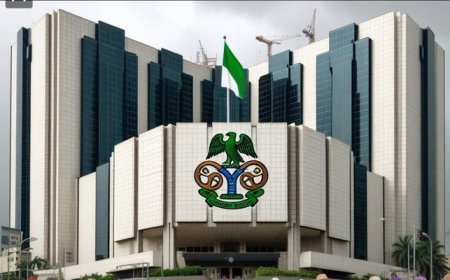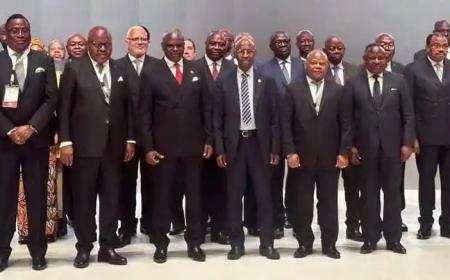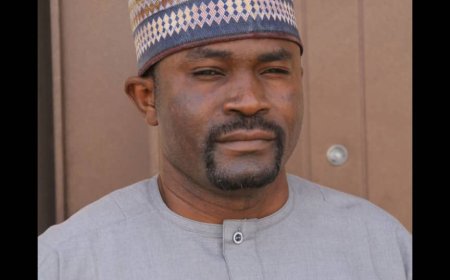Strengthening Public Trust in Law Enforcement: The Role of Ethical Leadership and Accountability
Explore the critical role of professional ethics in law enforcement, its necessity, sources, and global best practices in ethical policing to enhance accountability and public trust

Written by Dr. Ohio O. Ojeagbase, FICA, FIDR
Introduction
Law enforcement agencies worldwide are entrusted with significant responsibilities that directly impact the lives and liberties of citizens. The authority to detain, search, interrogate, and enforce laws confers upon security personnel a level of power that must be exercised with caution, fairness, and accountability. Given the potential for abuse of power, professional ethics serve as a necessary complement to legal frameworks, ensuring that law enforcement officers conduct themselves in a manner that upholds justice, integrity in business culture, mutual human rights, and social order.
This paper explores the role of professional ethics in law enforcement by examining its necessity, the sources of ethical standards, and the relationship between policing ethics and professionalism. Drawing insights from global law enforcement practices, this discussion underscores the importance of ethical training and adherence to codes of conduct in maintaining public trust and operational effectiveness.
Objectives
This study aims to:
-
Define the concept of professional ethics in law enforcement and establish its applicability across various security organizations.
-
Examine the sources and foundations of ethical standards in policing.
-
Explore the link between police ethics and professionalism in law enforcement agencies.
-
Highlight global best practices in ethical policing and their implications for contemporary law enforcement.
ADVERT
The Necessity of Ethics in Law Enforcement
The unique powers vested in law enforcement officers necessitate the establishment of professional ethical standards. While laws provide the framework for policing, they are often insufficient in regulating discretionary decisions that officers make in real-time. Ethical guidelines bridge this gap by ensuring that law enforcement personnel act in ways that align with justice, fairness, and human dignity.
Without a strong ethical foundation, law enforcement agencies risk fostering cultures of corruption, misconduct, and abuse of power. History provides numerous examples of cases where the absence of ethical adherence led to human rights violations, unjust prosecutions, and loss of public confidence in security institutions. In democratic societies, the legitimacy of policing is derived from public trust, which is directly influenced by the ethical conduct of officers.
Sources of Ethical Standards in Policing
The origins of professional ethics in policing can be traced to multiple sources, including:
-
Legal Frameworks – National constitutions, criminal laws, and judicial precedents set fundamental ethical obligations for law enforcement officers. These frameworks outline acceptable conduct and prescribe penalties for violations.
-
Institutional Codes of Conduct – Many police departments and security agencies adopt internal ethical codes, which provide detailed guidelines on acceptable behavior, use of force, and conflict resolution.
-
Social Morality and Cultural Values – Ethical policing is influenced by the moral fabric of society. Law enforcement officers are products of their communities, and their ethical perceptions are shaped by the cultural, religious, and moral values of the societies they serve.
-
International Human Rights Principles – Treaties and conventions such as the Universal Declaration of Human Rights (1948) and the European Code of Police Ethics (2001) provide universal ethical standards that guide law enforcement agencies worldwide.
By integrating these ethical sources, policing institutions develop a moral compass that enhances accountability, minimizes abuse, and promotes public trust.

- The Need For Private Investigators To Review AMCON'S Operations Over The Last Decade
- How Non Payment Of Your Debt Affect Your Integrity
- Strengthening Fight Against Financial Fraud in Nigeria
- Understanding The Dangers of Financial Fraud And How To Stay Clean
Ethical Challenges in Modern Policing
Despite the existence of ethical codes, law enforcement agencies worldwide continue to face ethical dilemmas and challenges, including:
-
Corruption and Abuse of Power – The discretionary nature of law enforcement duties creates opportunities for corruption, bribery, and favoritism. Without strict ethical adherence, officers may exploit their positions for personal gain.
-
Excessive Use of Force – The line between necessary force and excessive violence is often blurred in high-pressure situations. Ethical training helps officers navigate these complexities and make decisions that prioritize de-escalation and proportionality.
-
Discrimination and Bias – Law enforcement officers may unconsciously or consciously exhibit racial, gender, or socioeconomic biases in their interactions with the public. Ethical policing demands fairness, impartiality, and respect for human rights.
-
Accountability and Transparency – Holding officers accountable for unethical behavior is crucial in maintaining integrity. However, in many jurisdictions, institutional protections and political influences hinder effective oversight and disciplinary action.

Dr. Ohio O. Ojeagbase FICA,FIDR and The Commissioner of Police, Police Special Fraud Unit, CP. Godwin Ayotunde Omodeinde, psc, mnips
Ethical Policing and Professionalism
Professionalism in law enforcement is closely linked to ethical conduct. A professional police officer is not merely one who enforces the law but also one who adheres to moral principles that promote justice, fairness, and human dignity. The following principles underpin ethical professionalism in policing:
-
Integrity In Business – Integrity in business requires officers to be honest, transparent, and committed to upholding justice without prioritizing self-interest or monetary gain over their duty. They must enforce the law impartially, ensuring that personal interests, favoritism, or financial incentives do not influence their decisions or actions. Officers should refrain from any form of bias that could sabotage cases, particularly by soliciting or accepting bribes from suspects or complainants in exchange for altering the course of justice. When handling fraud investigations, law enforcement personnel must focus on delivering justice rather than exploiting victims who have already suffered financial losses. It is unethical and damaging for officers to prioritize success fees or extort immediate capital from individuals seeking redress for fraudulent activities. Ethical policing demands a commitment to fairness, ensuring that justice is not for sale and that officers remain dedicated to their professional obligations. Public trust in law enforcement is heavily dependent on officers' ability to demonstrate integrity and resist the temptation of corrupt practices. Any officer who engages in bribery or extortion not only compromises their credibility but also undermines the justice system as a whole. True professionalism in policing is rooted in ethical conduct, where officers serve as protectors of justice rather than opportunists seeking financial gain. Upholding integrity in business and law enforcement strengthens societal confidence in security institutions, ensuring that justice prevails without bias or corruption.
-
Accountability – Accountability in ethical policing demands that officers take full responsibility for both their actions and inactions, ensuring that every decision they make aligns with the principles of justice and fairness. They must be answerable not only to their superiors within the law enforcement hierarchy but also to external complainants who seek justice and to the communities they are sworn to protect and serve. This level of accountability fosters trust between the police and the public, reinforcing the idea that officers are not above the law but rather enforcers of it with integrity and transparency. When officers act without accountability, misconduct, abuse of power, and corruption can thrive, leading to public distrust and the erosion of the justice system. True ethical policing requires mechanisms that allow for independent oversight, ensuring that complaints against officers are investigated impartially and that appropriate disciplinary measures are taken when necessary. By embracing accountability, law enforcement agencies promote professionalism, deter unethical behavior, and strengthen public confidence in the justice system. Ultimately, an accountable police force upholds the rule of law with fairness, ensuring that justice is accessible to all and not influenced by bias, favoritism, or corruption.
-
Respect for Human Rights – Respect for human rights requires law enforcement officers to uphold the dignity and freedoms of every individual, ensuring that their actions align with principles of justice and fairness. They must prioritize the protection of fundamental rights, such as freedom of speech, privacy, and due process, while carrying out their duties with integrity. Any form of excessive force, unlawful detention, or discrimination undermines public trust and violates the core values of ethical policing. Officers should be trained to balance law enforcement with human rights protection, ensuring that security measures do not lead to oppression or abuse. A society thrives when its law enforcement institutions operate with fairness, treating every individual with respect, dignity, and equal protection under the law.
-
Service Orientation – Service orientation in policing means that officers must see their primary duty as serving and protecting the public, particularly victims of financial crimes who seek justice and redress. Instead of using their authority as a tool for dominance or personal gain, officers should act as guardians of justice, ensuring that victims are heard, supported, and guided through the legal process. Ethical policing requires officers to prioritize the needs of those who have suffered losses, demonstrating empathy, diligence, and a commitment to fairness in their investigations. When law enforcement officers genuinely serve the public, especially vulnerable individuals, they help restore confidence in the justice system and reinforce societal trust. A police force dedicated to service rather than control fosters a safer, more just society where victims feel protected rather than further victimized by corruption or neglect.
Law enforcement agencies that prioritize professionalism and ethics tend to have lower cases of misconduct and higher levels of public trust. Countries such as Norway and Canada, known for their strong emphasis on ethical policing, report higher citizen satisfaction with their police forces compared to nations with weaker ethical structures.

Global Best Practices in Ethical Policing
Several countries have implemented effective measures to promote ethical policing. Notable practices include:
-
Ethical Training and Education – Ethical training and education play a crucial role in shaping law enforcement officers who uphold justice, fairness, and integrity in their duties, as seen in countries like Finland and Sweden, where ethics courses are integrated into police academies. These courses ensure that recruits understand the moral and ethical dimensions of policing before assuming their responsibilities, preparing them to make just and impartial decisions in complex situations. To enhance the effectiveness of ethical training, external professionals from the private sector should be engaged to bring in fresh perspectives and modern best practices that may be absent in public sector-driven curricula. Many law enforcement training programs rely on outdated methods that do not address contemporary ethical challenges, making it essential to incorporate private sector insights for greater efficiency. By integrating real-world ethical case studies and corporate governance principles, police training can better prepare officers to handle corruption, bias, and abuse of power with a more informed and accountable approach. Ethical education should not be a one-time requirement but a continuous process that evolves with societal changes and law enforcement advancements. A well-trained police force with strong ethical foundations is better equipped to serve the public, uphold human rights, and foster trust between law enforcement agencies and the communities they protect.
-
Independent Oversight Mechanisms –
Independent oversight mechanisms are essential for maintaining accountability within law enforcement agencies, ensuring that officers adhere to ethical standards and professional conduct. Nations like the United Kingdom and Australia have established independent police complaints commissions that investigate allegations of misconduct, providing an impartial platform for citizens to seek justice. These bodies operate separately from law enforcement and government influence, making their findings more credible and fostering public trust in the policing system. By holding officers accountable through external scrutiny, such mechanisms deter corruption, abuse of power, and unethical behavior, ultimately leading to a more transparent and professional law enforcement system.
For the Nigeria Police Force (NPF), I strongly advocate for the establishment of a private sector-driven independent oversight body that is completely devoid of police or government interference. Such an institution could employ techniques similar to "mystery shoppers," where undercover operatives test the efficiency, integrity, and professionalism of police investigative activities. This approach would provide real-time assessments of how officers handle cases, especially in areas of financial crimes, fraud investigations, and public interactions. By ensuring that oversight remains unbiased and free from institutional influence, this mechanism would encourage better policing practices, instill discipline within the force, and restore public confidence in law enforcement services across Nigeria.
-
Body Cameras and Technology Use – The introduction of body-worn cameras in the United States and Canada has significantly enhanced transparency, providing clear evidence of police interactions with the public. This technological advancement has also played a crucial role in reducing instances of police brutality by ensuring accountability in real-time. In light of these successes, the Nigeria Police Force should seriously consider adopting body cameras, along with other modern technological tools, to improve the transparency and integrity of its operations. By leveraging these innovations, the NPF can ensure greater accountability, strengthen public trust, and promote professionalism in policing. Additionally, forming collaborative partnerships with technology providers could further enhance the efficiency and effectiveness of police investigative activities across the nation.
-
Partnership Policing Models – Partnership policing models represent an advanced approach to law enforcement, where technocrats within the criminal justice system, such as private investigators and private prosecutors, are incorporated into collaborative platforms. This partnership facilitates the cross-pollination of ideas and expertise, enabling the sharing of innovative strategies for more effective policing. Such a model is not only cost-effective, but it also reduces the financial burden on the government, especially when compared to the expensive alternative of sending law enforcement agents abroad for training. By tapping into local resources and expertise, the collaboration enhances the capacity of domestic agencies to address crime and corruption more efficiently. This model would be particularly beneficial in addressing financial fraud, a significant issue plaguing the economy. As President Bola Ahmed Tinubu's Renewed Hope Agenda seeks to uplift a broader section of the population, it is crucial that the economy is protected from fraudulent activities that threaten businesses, particularly those faced with dubious customers who refuse to repay credits and loans. Involving private sector experts in policing will strengthen enforcement efforts, ensuring that these businesses are better shielded from financial crime. This strategy could also help restore confidence in the economy, creating a safer environment for business growth and sustainable economic development.
These models demonstrate that ethical policing is not merely a theoretical ideal but a practical necessity for effective law enforcement.

Conclusion
The role of professional ethics in law enforcement cannot be overstated. As security agencies wield immense power, ethical guidelines serve as a critical counterbalance, ensuring that their authority is exercised responsibly and justly. From legal frameworks and cultural values to institutional policies and international principles, ethical standards in policing draw from diverse sources to shape professional conduct.
By upholding ethical principles, law enforcement officers enhance public trust, reduce misconduct, and create safer societies. However, ethical policing requires continuous training, institutional commitment, and mechanisms for accountability. Nations that prioritize ethics in law enforcement not only strengthen their justice systems but also safeguard the fundamental rights of their citizens.
About the Author
Dr. Ohio O. Ojeagbase, FICA, FIDR, is a distinguished expert in law enforcement ethics, debt recovery, and private investigation. With a strong background in security studies and corporate governance, he has contributed significantly to discussions on professional ethics in policing. Dr. Ojeagbase is the Convener of the Coalition Against Financial Fraud Initiative in Africa (CAFFIA) and a thought leader in investigative methodologies. His research and publications aim to enhance transparency, accountability, and professionalism in security services worldwide. He is also the Co-founder/Chief Private Investigator of KREENO (A Debt Recovery, Security Integrity, and Private Investigation Firm)

Kindly share this story:
Contact: report@probitasreport.com
Stay informed and ahead of the curve! Follow The ProbitasReport Online News Report on WhatsApp for real-time updates, breaking news, and exclusive content especially when it comes to integrity in business and financial fraud reporting. Don't miss any headline – and follow ProbitasReport on social media platforms @probitasreport
[©2025 ProbitasReport - All Rights Reserved. Reproduction or redistribution requires explicit permission.]
What's Your Reaction?




































































































